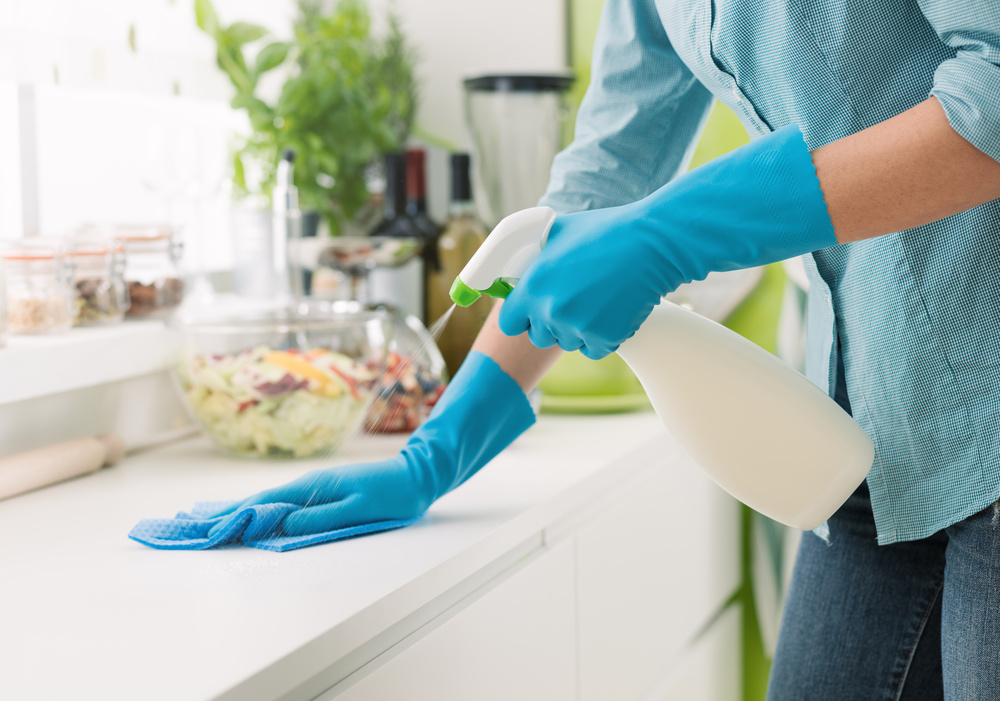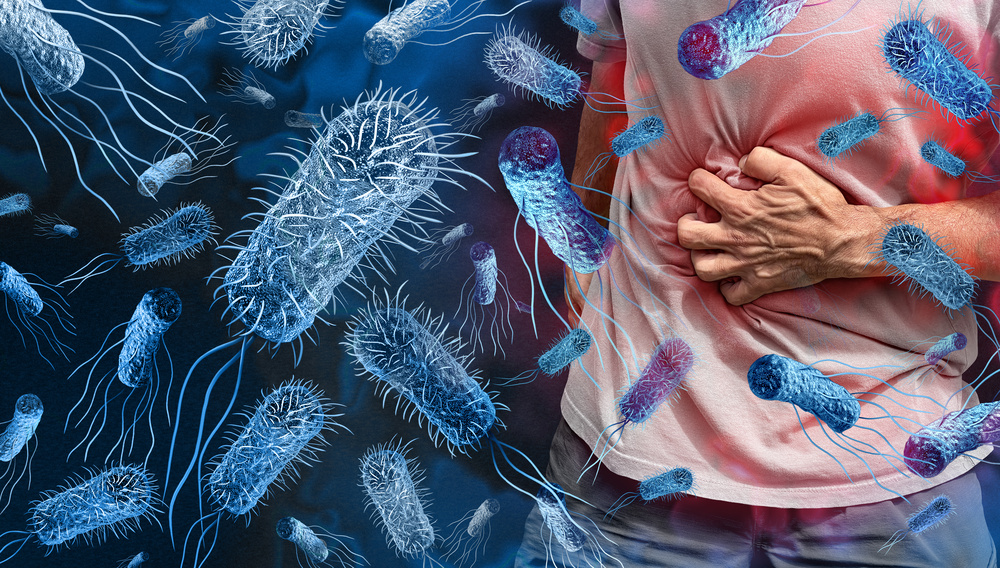Proper food handling and preparation are crucial to food processing no matter where you are, whether in a restaurant or industrial setup. This can help you prevent foodborne illnesses.
Table of Contents
ToggleFoodborne illness, also known as food poisoning, is caused by eating contaminated food and beverage, including water. It also refers to a wide range of parasites, bacteria, viruses, molds, and toxins (produced by pathogens).

Woman cleaning and polishing the kitchen worktop with a spray detergent, housekeeping and hygiene concept
Major foodborne illnesses include:
- Salmonella: A disease-causing bacterium that can be found in fresh poultry meats and poultry products such as eggs.
- Coli: This coliform can be found in food products contaminated with fecal matter.
- Shigella: Like coli, shigella can be found in fecal matter and transmitted to food through cross-contamination.
- Hepatitis A: This is a virus that attacks the liver. People who’ve eaten food contaminated with the hepatitis A virus may have jaundice due to liver infection.
- Staphylococcus: This bacterium can be found in the human skin and transmitted to food due to improper personal hygiene.
Foodborne illnesses can lead to serious complications if left ignored and can affect people of all ages. That’s why promoting environmental hygiene in the kitchen is crucial. Below are some practices that may help you prevent foodborne illnesses:

Salmonella poisoning Bacteria outbreak concept and bacterial infection as a microscopic background with dangerous foodborne disease as a person suffering with stomach pain with 3D render elements.
Wash Your Hands Regularly
Washing your hands regularly is one of the most important practices when handling and preparing food. This easy and simple personal habit can help prevent most foodborne illnesses. Follow these steps to ensure that your proper handwashing:
- Wet your hands with lukewarm water.
- Apply liquid soap.
- Scrub your hands gently and make sure to reach every part of your hands. Do this for at least 20 seconds—singing Twinkle, Twinkle, Little Star or Happy Birthday twice at normal speed.
- Rinse your hands with clean water.
- Wipe your hands using paper towels or clean cloth towels. Then, use the same paper towels to turn off the faucet. Never touch the faucet to prevent contaminating your clean hands.
When should you wash your hands? To keep everyone safe, frequent or regular handwashing is highly recommended. Keep in mind to wash hands:
- Before touching food
- After touching food, especially raw meat
- After bathroom breaks
- After handling garbage
- After touching your face when blowing your nose, sneezing, or coughing
- Whenever your hands might be contaminated
Although handwashing seems easy and simple, it’s the first line of defense that can help you prevent foodborne illnesses.
Handle Raw Meat Properly
Failure to handle raw meat properly can increase the risk of developing foodborne illnesses tenfold. Therefore, it’s important to take the necessary steps when handling raw meat to prevent diseases and ensure your food is always safe for consumption.
Here are some tips to follow:
- Never wash raw meat under water. The splatter you make can spread the bacteria it contains across nearby surfaces, promoting cross-contamination and foodborne illness. Instead, pat your meat dry using paper towels.
- Thaw your meat properly. You can thaw it under running water or microwave or place it in the refrigerator in advance. Never leave your meat at room temperature because this will promote the growth of bacteria, causing foodborne illnesses.
- Use a meat thermometer when cooking meat. This can help ensure the doneness of your meat and decrease the risk of developing foodborne illnesses.
Raw meat is one of the primary sources of contamination. So, make sure you’re handling your meat properly to prevent foodborne illnesses.
Use Clean Utensils, Surfaces, And Equipment Only
Before you start preparing food, ensure that the kitchen is safe, clean, and sanitized to prevent the spreading of pathogens, reducing the risk of foodborne illnesses. These include utensils, appliances, countertops, and anything the food may come in contact with.
Cleaning removes all the dirt that may cause microbial growth. Sanitizing kills most bacteria in utensils, surfaces, and equipment. These two processes are among the basics of proper food preparation, preventing foodborne diseases.
Use Foods Before They Expire
Most people believe that food is good until they notice something off in it. It’s a common food myth, but unfortunately, that’s not necessarily the case.
In most cases, pathogens become dangerous even if you can’t see, taste, or smell them. You’ll only realize once the symptoms of foodborne illness show up such as:
- Fever
- Diarrhea
- Nausea
- Vomiting
- Headache
- Dizziness
- Upset stomach
- Stomach cramps
This is why it’s important to use food products before they expire. If they do, dispose of them immediately to prevent other people from using them, especially after the printed date. Even if you cook expired ingredients thinking that the heat will kill off any microbes present, you’ll never be able to guarantee how safe it is.
Final Words
When it comes to food preparation, preventing foodborne illnesses should be one of your top priorities. This ensures that the food you serve is always safe for consumption. Keep in mind to wash your hands as regularly as possible, handle raw meat accordingly, clean and sanitize everything, and use food before it expires. Follow these simple tips so you can guarantee safe and clean food always.